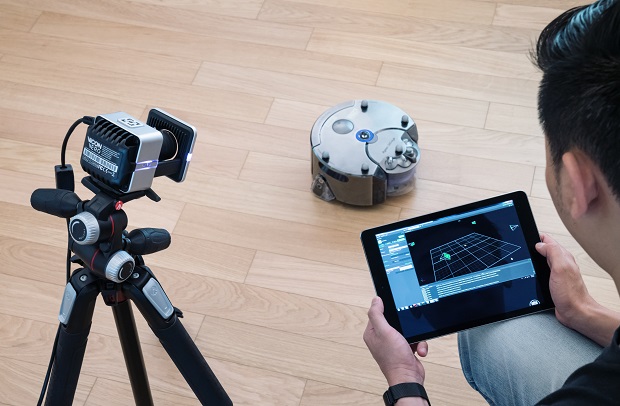As with most workplaces, no two days are alike at British appliance manufacturer Dyson’s Technology and Engineering Center in Alabang.

One moment you’ll find an engineer behind the computer writing code. The next moment, he’s in a meeting room discussing a project. At other times, he’s engaged in a video conference.
The difference is that they’re working in an environment where next-generation technology is the name of the game. After all, engineers are developing embedded software for machines. Not your ordinary machine; but intelligent machines poised to power Dyson’s future wave of high-grade appliances – from hair and hand dryers, air purifiers and lights to bladeless fans and cord-free vacuum cleaners.
Another difference is the international flavor that the software lab brings to the floor. Aside from the Philippines, Dyson boasts of an engineering presence in the UK, Singapore, Malaysia, and China. All in all, the Dyson family has over 14,000 personnel, nearly half of whom are engineers and scientists.

Thus, Filipino software engineers working in the Alabang facility get to interact with their foreign counterparts via video conferencing, allowing them to collaborate with equally bright-minded people outside the Philippines.
“It’s typically packed with exciting projects and catch ups with local and international teams to ensure that we are in sync and on track. As lead engineer, I’m responsible for organizing software teams and keeping everyone on track with their projects so that we can meet the milestones that we set out to achieve. You’ll find me jumping in and out of conversations with automation test engineers, product owners and fellow software engineers,” Mark Oliver Boydon enthused. “There’s never a dull moment!”
“We work in highly agile teams across multiple projects,” added software engineer Jimmi Allen Mari Chavez.
The Dyson culture believes in pioneering new solutions instead of sticking to conventional wisdom. Plus, it promotes experimentation and embraces failure.
“Dyson’s mission is to engineer new technologies that perform differently and better, and to do it first. To accomplish that requires that we create a culture that affords people the freedom to experiment without the fear of failure,” explained Phillip Stephens, Dyson’s head of research design and development in the Philippines. “As such, engineers can look forward to an open, meritocratic culture where ideas can be challenged, tested and embraced.”

Boydon attests to such culture at Dyson, adding he has been in the software industry for 15 years and his present job is the best experience so far.
“Its culture is truly different from anything I’ve experienced – in a good way. We’re given a high degree of autonomy when it comes to how we choose to run our projects and we’re also empowered to try out different solutions to all the problems we’re presented with,” he shared.
Boydon and Chavez began working at the Alabang software lab in January 2021. They are among Dyson’s 40 new recruits since it opened. The two have always looked forward to another working day at their office.
“I’ve always been a fan of Dyson’s iconic products such as the Supersonic hair dryer. That I now have the opportunity to play a role in the development of Dyson’s future products and machines pipeline is what really gets me going,” said Chavez who develops embedded software for the Pure Cool purifier fan, cord-free vacuum cleaner and the Dyson Corrale straightener, among others.
For Boydon, the enjoyment he gets from working with others to find creative and innovative solutions to daily problems is what makes him excited to get up from bed and go to work every single day.
“As an engineer,” he claimed, “I love a good problem to solve!”
“Dyson is a truly special company with a unique approach to how it develops its products. If working on new and disruptive technologies and venturing into unchartered waters is what excites you,” Chavez added, “then I’d absolutely recommend it!”

Even young college graduates are given importance in the Dyson workplace with its holistic graduate development program that combines on-the-job learning, mentorships and formal training.
“By giving them big responsibilities and a healthy dose of challenge, coupled with a comprehensive support network, we aim to grow them into confident, collaborative and agile leaders,” Stephens revealed.
In November 2020, the global technology company announced its intent to hire around 4,000 software engineers in the next three years for its Alabang facility. The move was in line with the company’s £2.75 billion global investment plan to double its technology and product portfolio and penetrate new fields beyond home products by 2025.
The company is currently fast-tracking its R&D efforts in software, robotics, AI and machine learning.




